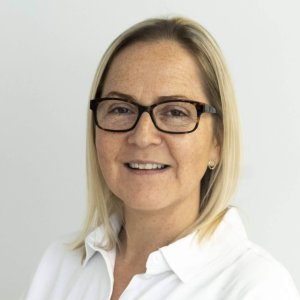People often ask what my job entails and it’s difficult to say specifically as it’s so varied – each day and every school I support is so different. So, in this blog, I’ll give you a flavour of what the role involves so you can decide if this support would be useful for your setting.
I start the week working alongside a designated safeguarding lead (DSL) in a special school. They have commissioned me for DSL mentoring as they have a DDSL who is new to the role. We work together on preparing for an Initial Child Protection Conference – I deliver support with report writing, ensuring all the relevant information is included, ensuring that safeguarding partners can make an informed decision at the Child Protection Conference about whether a Child Protection Plan is necessary to provide safety for the child. I help the DDSL to make sure their specialist knowledge of that child and their SEND needs is explicit within the report and clear to other professionals, who may not understand that child’s needs and, therefore, their vulnerabilities.
After that, we work through the incident logs on CPOMS, deciding together what actions to take, ensuring the records are written in accurately with the right amount of detail, including the rationale behind the actions we had chosen to take. Next on the ‘to do’ list is supporting the member of staff to have a difficult conversation with a parent – this is something which I have found people often struggle with. Learning how to have these challenging conversations is essential, but it is something which those who are new to role may need support with. Making sure a parent is aware of what our concerns and worries are about the care they are providing for their child, without minimising these for fear of destroying the relationship with school, is a constant balancing act.
The next day, I am in the office first thing, preparing to record my training webinar: ‘Understanding the Child Protection Processes – the Role of Education’. Then over to the studio to do the recording. I really enjoy developing training for DSLs and this webinar is something I wish was available to me when I was a new DSL in a school. Once my recording is finished, I leave this with the media team for editing. I head back in the office to finish the final preparation for the whole school briefing I was delivering on ‘Child-on-Child Abuse’, later in the day. Full staff training can be a really rewarding part of the job as you get a real sense of how much the staff care about the wellbeing of the children in their care and how much a school is willing to invest in staff Continued Professional Development (CPD).
Wednesday is totally different, with a day completing CPOMS Quality Assurance for a school. I’m always really intrigued when doing quality assurance on a school’s CPOMS as the categories the schools use, the way they record, and the actions they take are always vastly different. So, for me, it’s also a learning curve. As much as I am there to quality assure and provide a report with recommendations, I nearly always learn something. Be that a new agency that I can recommend to other schools that provides support, or the way a school holds their internal safeguarding or vulnerable pupils’ meetings – it’s always fascinating!
Now, it’s Thursday. First thing, I’m starting to write up my CPOMS QA report for the school. Then in the afternoon I’m off to the other side of Manchester for Safeguarding Casework Supervision sessions. As an NSPCC trained safeguarding casework supervisor, I work with DSLs and DDSLs in supervision to support them to manage challenging cases and the emotional impact of a very demanding, sometimes distressing job. Then it’s back to the office to ensure the supervision notes are typed up and sent to my supervisees.
Friday, I’m delivering ‘Pastoral Safeguarding Training’ to the pastoral staff across a multi-academy trust. This includes attendance leads, heads of year, assistant head teachers, teaching assistants, mentors and family support workers. I love this training – it’s a deeper dive into safeguarding than the Whole School Safeguarding Training and really looks at how the work of the wider pastoral team supports the safety and wellbeing of the pupils. Increasing the understanding of trauma and abuse for these staff members means that the safeguarding culture of a school is really evident. Up-skilling pastoral staff and investing in CPD is so important as they are often the staff members who children speak to first and their responses are critical in providing the right support at the right time for our children and families.
In the afternoon I’m in another school facilitating a CPOMS QA follow-up visit. This entails supporting the DSL and headteacher to implement some of the recommendations made in their CPOMS QA report. I enjoy working with staff to implement changes as I’ve found that often DSLs are unaware of what CPOMS can do. They are so busy in the day to day of the job, understanding how the system works to support them in their data collection, Ofsted preparation, and looking at possible staff training is often something that can fall to the bottom of the ‘to do’ list.
I love how varied my job is, working alongside so many different schools and staff members to support them in their safeguarding roles. I truly admire how open schools are to improving their safeguarding practice. If there’s anything you think our Safeguarding Team could support you with, please don’t hesitate to get in touch. We love getting to know all the different schools out there.
Please complete the form below and we will get in contact as soon as we can to help you with your query.




